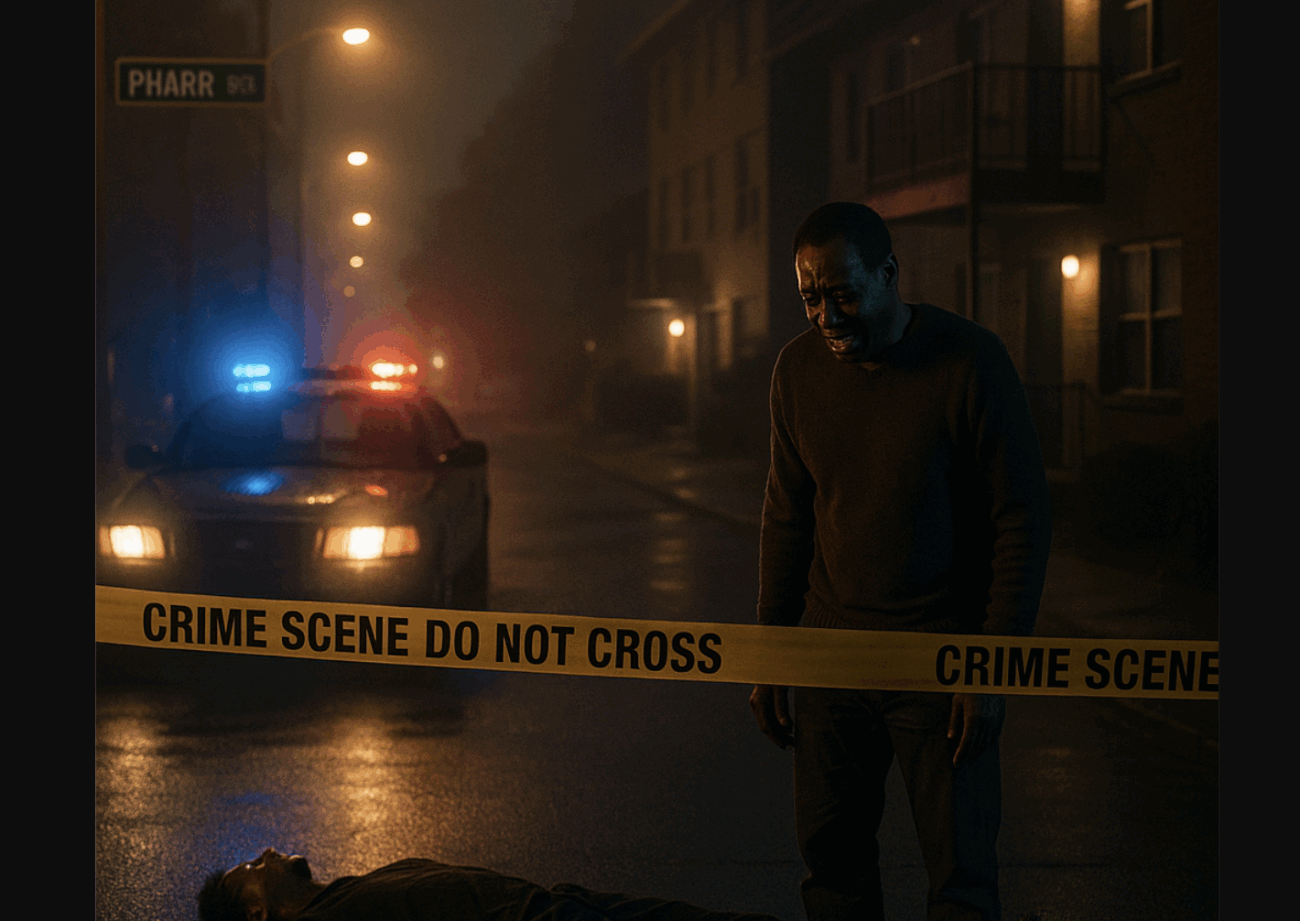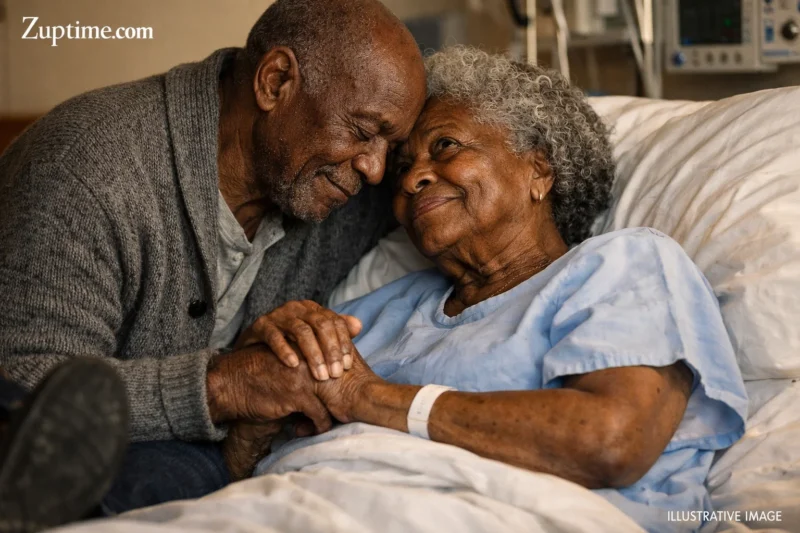The night in Atlanta was meant to be calm.
The steady hum of cars along Pharr Road, the dim halo of streetlights, the soft rhythm of a city at rest — until a sound broke through the stillness.
Twelve gunshots.
Twelve bursts of light that ended one life and shattered another.
At the heart of the tragedy was Durante Schofield, a 32-year-old man — a son, a friend, a man with dreams that were as flawed and human as anyone’s.
He wasn’t a public figure, just an ordinary man. Yet on that October night, his name became synonymous with the unimaginable: a son killed by his own father.
It began with an argument — just an argument.
Durante and his girlfriend were inside their apartment, their voices rising and falling in the familiar rhythm of tension. No one outside could have guessed that within an hour, police tape would cordon off the courtyard and a body would lie beneath flashing blue lights.
Frightened and unsure what to do, the girlfriend made a call she believed would help.
She contacted his father — Durante Rowe-Tolliver, aged 54 — hoping he would calm his son and defuse the situation.
But when the door closed behind them, peace did not follow.
The two men stepped outside together. Perhaps there was silence at first, the weight of years of strain hanging between them — unspoken anger, misunderstanding, and the kind of pain only family can inflict.
Neighbors later reported hearing raised voices. Then quiet. Then gunfire — twelve shots in quick succession.
When police arrived, they found Durante Schofield lying motionless on the ground. He had been shot twelve times. The father who had pulled the trigger remained at the scene, trembling, visibly shaken, standing over the body of his son.
Authorities later said the father claimed he thought his son was reaching for a weapon. But no firearm was found — only a phone, its screen still lit, a conversation left unfinished.
What could have passed through a father’s mind in those seconds? Fear, anger, confusion — or years of unresolved conflict erupting all at once?
It’s impossible to know.
Neighbors said the family had endured its share of struggles. Arguments weren’t uncommon, but no one believed they would end in such devastation.
By dawn, the crime scene had grown quiet.
Investigators packed up their evidence markers. The coroner’s van drove away.
Sunlight crept across the apartment complex, touching the stains on the pavement, the shards of glass, the silence that followed violence.
Inside, a mother mourned. She had lost her son — and, in another sense, her husband as well. How does one grieve when both roles, parent and partner, collapse in a single night?
The news spread quickly. Friends flooded social media with disbelief.
“He was such a good person.”
“He didn’t deserve this.”
Few ever do.
Police charged Durante Rowe-Tolliver with murder, aggravated assault, and possession of a firearm during the commission of a felony.
He was taken into custody without resistance — perhaps because, in his mind, punishment had already begun.
He told officers he believed his son was about to shoot him, yet the brutality of twelve close-range shots left little room for self-defense. What remained was the wreckage of fear and fury, love twisted into destruction.
Friends remembered Durante Schofield as kind, funny, and deeply protective — someone who valued family above all else.
That makes the tragedy even harder to grasp: the very bond he cherished became the cause of his death.
His girlfriend, still shaking when she spoke to police, could only repeat, “I just wanted them to talk. I just wanted help.”
Her plea for peace had brought catastrophe.
For many, the incident became just another headline in a long list of domestic tragedies.
But beneath the surface lies a painful truth about human frailty — about how pride can erode love, how fear can disguise itself as protection, and how a moment of rage can erase decades of life.
Anger doesn’t arrive loudly. It begins quietly — a word left unspoken, a wound ignored. Over time, it festers. And one day, when tension meets emotion, it explodes — twelve bullets in the dark, twelve irreversible choices.
The sound fades, but the damage doesn’t.
In Atlanta, traffic returned, laughter filled the buildings again, yet somewhere within those walls, echoes remain — the shots, the screams, the silence.
For those who knew Durante, grief is not abstract. It’s the missing voice on the phone, the empty chair at dinner, the messages that will never be answered.
In a prison cell, Durante Rowe-Tolliver sits alone.
Once a father, now a man haunted by memory.
The bars confine his body, but the greater prison is his mind — the replay of a moment that cannot be undone.
Every night, he will see his son’s face.
Every morning, he will remember what he did.
And perhaps, in that endless loop of remorse, he will whisper the question that has no answer: Why did I pull the trigger?
This story is more than a single act of violence — it’s a reflection on the fragile line between love and rage, and on the importance of healing before it’s too late.
Because once the gun is fired, there is no turning back.
And somewhere in Atlanta, a mother lights a candle, a friend scrolls through old photos, and a man in a cell stares at the wall — living with the sound of twelve gunshots that changed everything.




